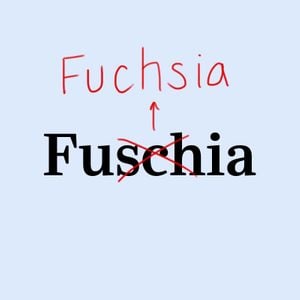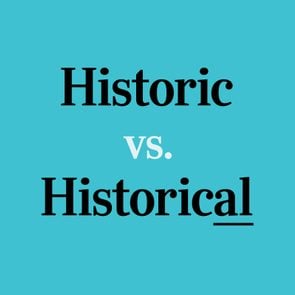We say this word multiple times a day, but what does it really mean? Two linguists took the time to explain the fascinating origin of o'clock.

This Is What the “O” in “O’clock” Stands For

Brat. Whale eye. Barbiecore. In today’s fast-moving world, it can be tough to keep up with all the new words we read or hear. But what about the words we use every day without a second thought? Take the term o’clock, for instance. Have you ever asked yourself: What does the o in o’clock stand for?
The punctuation mark after the o and before the clock signifies that something is missing—the apostrophe is taking the place of one (or more) words or letters. But which words or letters got the boot at some point in history? I talked to two linguists to find out.
Read on to learn what the o in o’clock stands for and how the word evolved throughout history. The answer might surprise you!
Get Reader’s Digest’s Read Up newsletter for more grammar, humor, travel, tech and fun facts all week long.
What does the o in o’clock stand for?
Though some folks think that the o in o’clock stands for “on the,” it actually comes from the phrase of the clock. When we use the word o’clock, we’re saying that it’s a particular hour “according to the clock.” For example, “it’s almost 4 o’clock” means the same thing as “it is almost 4 according to the clock.”
According to the Oxford English Dictionary, the phrase of the clock can trace its origin back to 1384. This coincides with the growing popularity of mechanical clocks in Europe, the first of which were thought to have been built between 1270 and 1300 in northern Italy and southern Germany. Before this, time was often measured by sundials or shadow clocks. As clocks became more prevalent, of the clock became a standard way to indicate time.
Why did people start shortening this phrase?
These days no one says, “I’ll meet you at 6 of the clock.” We say, “See ya at 6 o’clock.” The Oxford English Dictionary cites 1419 as the first known use of the contraction o’clock, just a few decades after the debut of the phrase of the clock. So how did of the clock morph into o’clock?
As they do with many cumbersome words and phrases, people naturally shortened of the clock to o’clock for quicker and easier communication. “Because it’s a set phrase for telling time, it’s not surprising that it got shortened over time because we’re saying it fast,” says Anne Curzan, PhD, a professor of English, linguistics and education at the University of Michigan.
As Michael Adams, PhD, a professor of English and linguistics at Indiana University, explains, the abbreviation makes sense when you understand how the English language evolves. “It’s unusual for English speakers to retain a lot of words in unstressed positions in a phrase,” he says. “In ‘1 of the clock,’ you’ve got two unstressed words there: the of and the the. And it is an invitation to a type of abbreviation. So it’s not ‘1 of the clock’ but ‘1 o’clock.’ You get that nice alternating rhythm there, which is so typical of the cadence of English.”
As literacy increased and written language became more standardized, the shortened form o’clock took hold. “Part of what you have here is that, because these are early enough, the spelling comes to reflect the pronunciation,” adds Curzan.
Where does the clock in o’clock come from?
Now that you know what the o in o’clock stands for, you may wonder where the clock comes from. Here’s a fascinating fact for you: It has roots in Christianity. See, the earliest mechanical clocks were in church towers and indicated the time by striking a bell, calling worshippers to Mass or prayer. The Latin word for bell is clocca. Sound familiar?
So people referred to time in terms of chimes. “If you are a monk or a nun, you think of time in terms of bells because the bells will toll, and if it’s nine bells, then you know where you’re supposed to be praying or singing hymns,” says Adams.
Eventually, smaller clocks became popular, and more homes could afford them. And many of those timepieces (grandfather clocks or spring-run clocks) employed a bell that would chime on the quarter hour, half hour or hour. “So the bell doesn’t go away,” says Adams. “The word for bell gets adopted for the thing that tells the time. And then suddenly we’re using the word clock in English.”
What are some fun variants of the phrase?
The standard way to state a precise time is by putting a number in front of o’clock. But according to Curzan, by the mid-1800s, you could put a word in front of o’clock as an informal indication of the time of an event. “So this is when you’ll start to see ‘dinner o’clock,‘” she says. Though Curzan says the phrase wine o’clock is pretty new, the Oxford English Dictionary cites this example from a 1910 San Francisco Chronicle article: “I’ve been here ever since beer o’clock.”
Here are some other fun expressions that describe time based on an activity or even emotion:
- Nap o’clock
- Brunch o’clock
- Self-care o’clock
- Party o’clock
- Movie o’clock
- Stupid o’clock
What are other uses for o’clock?
Today we ask each other, “What time is it?” In the past, according to Curzan, you could have asked, “What o’clock is it?” We probably don’t have to tell you that you won’t find that use in the dictionary anymore. It’s now obsolete.
But there are other uses of o’clock that have stuck around. “Something that we still do today, which we have recorded back to the 1700s, is using ‘x o’clock’ in terms of directions,” says Curzan. Say you want to alert your friend that her boss is in the restaurant. You could say, “He’s with the woman in the green dress,” or you could say, “He’s at 9 o’clock.”
We also drive with our hands on the steering wheel in the 10 and 2 o’clock positions, “which makes no sense unless you know how we’re using those to orient,” she adds.
What are other similar (and surprising) contractions?
O’clock isn’t the only shortened word with an interesting meaning. Here are some others:
- Jack-o’-lantern: Our term for the lit-up, hollowed-out, grinning symbol of Halloween originated in 17th-century Britain. At that time, the British often referred to unnamed men as Jack. So a night watchman was sometimes called “Jack with the lantern” or “Jack of the lantern.” In time, of the was shortened to o.
- Howdy: This greeting is a shortened form of “How do ye?” It dates back to when we said “ye” instead of “you.”
- O’er/O’ernight: In these and other poetic contractions, the apostrophe replaces the v in “over.”
- Imma: This popular slang word actually combines two contractions: I’m (I am) and gonna (going to).
If you found it fascinating to learn what the o in o’clock stands for, then you probably live in the same time zone as us. And what time is it, exactly? Why, it’s grammar o’clock!
About the experts
|
Why trust us
At Reader’s Digest, we’re committed to producing high-quality content by writers with expertise and experience in their field in consultation with relevant, qualified experts. We rely on reputable primary sources, including government and professional organizations and academic institutions as well as our writers’ personal experience where appropriate. We verify all facts and data, back them with credible sourcing and revisit them over time to ensure they remain accurate and up to date. For this piece on what the o in o’clock stands for, Jo Ann Liguori tapped her decades of experience as a copy editor to ensure that all information is accurate and offers the best possible advice to readers. Read more about our team, our contributors and our editorial policies.
Sources:
- Anne Curzan, PhD, professor of English, linguistics and education at the University of Michigan and author of Says Who? A Kinder, Funner Usage Guide for Everyone Who Cares About Words; phone interview, Sept. 26, 2024
- Michael Adams, PhD, professor of English and linguistics at Indiana University Bloomington; phone interview, Sept. 26, 2024
- M.S. Rau: “A Brief History of Timekeeping”
- Scientific American: “A Chronicle of Timekeeping”
- Saturday Evening Post: “How Clocks Came Into Fashion”
- Merriam-Webster: “The History of ‘Jack-O’-Lantern'”
- Online Etymology Dictionary: “Howdy”
- Oxford English Dictionary: “O’clock”



